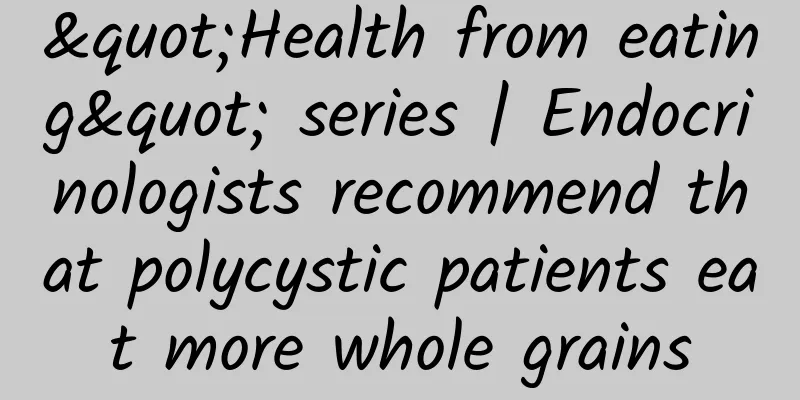"Health from eating" series | Endocrinologists recommend that polycystic patients eat more whole grains

|
Polycystic ovary syndrome is one of the common causes of menstrual disorders and infertility in women of developmental age. Among the causes of its onset, unreasonable diet is one of them. Five dietary suggestions are given to such patients, including eating whole grains in moderation. Polycystic patients are prone to high blood sugar levels, so when choosing food, they should pay attention to the glycemic index (GI). Foods with low GI values will make blood sugar levels rise and fall more slowly. Foods with a GI below 55 are low-GI foods, which are foods that polycystic patients with impaired glucose tolerance can eat safely, and whole grains belong to this category. The relationship between the glycemic index of some foods and their effect on blood sugar From the perspective of carbohydrates, some PCOS patients believe that if they want to lose weight, they must limit their carbohydrate intake. In fact, there is no need to completely avoid carbohydrates. High-quality carbohydrates provide the body with very beneficial nutrients, which can provide the body with necessary energy. They are also rich in a variety of healthy fiber, vitamins, minerals and phytonutrients. "Good" carbohydrates include fiber-rich vegetables, beans, low-GI fruits and whole grains. These natural ingredients are rich in fiber and usually have a stronger sense of fullness. Moreover, most PCOS patients have higher levels of inflammatory factors in their blood than others. Therefore, it is recommended to choose anti-inflammatory foods, among which whole grains can help with anti-inflammatory. Of course, fish, olive oil, nuts, flax seeds, etc. are also foods that can help the body reduce inflammation, so you can eat some. In addition, PCOS patients are suitable to choose some antioxidant foods, such as berries containing a large amount of proanthocyanidins. In short, following an anti-inflammatory and antioxidant diet can reduce inflammation, slow down organ aging, and improve PCOS symptoms. This article was scientifically reviewed by Zhang Manna, deputy chief physician of the Endocrinology and Metabolism Department of Shanghai Tenth People's Hospital, with contributions also from Qiao Jingfang of the Whole Grain Channel of the People's Daily Health Client. |
Recommend
What is secondary infertility?
In life, many young people are unable to conceive...
Side effects of taking ceftriaxone for women
Cefixime is a common antibiotic we have. Cefixime...
Appearance of a woman's uterus
We have seen the appearance of a woman's uter...
What are the solutions for insomnia during menstruation?
Women have their periods for a few days every mon...
Women should eat five kinds of food to replenish qi and nourish blood!
Qi and blood are very important for women. Insuff...
How to dress for short girls
Everyone has different requirements for height, e...
How can massage during menstruation promote menstrual blood discharge?
During menstruation, women's body sensitivity...
What should pregnant women do if their belly is tight?
Many female friends have experienced a tight bell...
Latest research: Women live longer! Why is the gap in life expectancy between men and women getting bigger? Doctors say →
On March 30, a research report published in The L...
On World No Tobacco Day, let’s talk about the misunderstandings about smoking
my country is one of the countries with the large...
Does small follicles affect conception?
Small follicles are an abnormal condition. This c...
Is the air in Sanya good for human health? What fish are there in the rivers of Sanya?
Sanya has a beautiful environment. It not only ha...
Girls' legs will become thicker if they run for a long time
Some girls choose to run when they want to lose w...
37 weeks leucorrhea blood
Generally speaking, women will no longer have the...
Girl's stool bleeding is bright red and painless
In our daily life, we may encounter some situatio...









